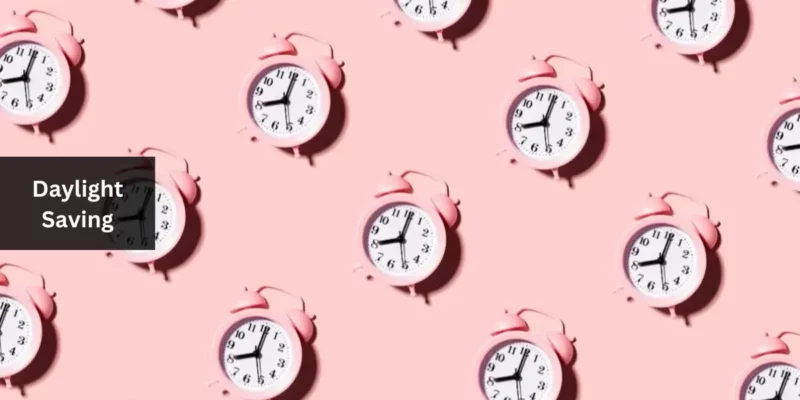Daylight Saving: The cycle of ‘Daylight Saving’ time is sure to commence again in March 2024, requiring us to adjust our clocks forward, effectively leading to a loss of an hour of sleep. But this weekend, many Americans will set their clocks back, for that added hour of sleep as daylight saving time concludes.
Table of Contents
How does Daylight Saving Affect the Americans?
The time shift impacts the daily routines of millions of Americans, necessitating clock adjustments and resulting in a reduction of sleep in the days following the change. It also leads to earlier sunsets, which may have contributed to a decline in public support for daylight saving time in recent years.
Despite legislative attempts to abolish daylight saving time, these efforts have encountered obstacles in Congress. Here’s what you should know about ‘Daylight Saving’ time.
What Is Daylight Saving Time?
Daylight saving time is observed between March and November when most Americans adjust their clocks by one hour. The November change grants an extra hour of morning daylight, while the March shift adds an extra hour of evening daylight during the summer. In the Northern Hemisphere, the fall season started with the autumnal equinox on September 23.
When Is Daylight Saving Time For 2023?
Daylight saving time for 2023 concludes on Sunday, November 5 at 2 a.m. local time when clocks are turned back an hour. This biannual time change affects most Americans, though not all.
When Does Daylight Saving Time Begin In 2024?
In 2024, daylight saving time commences at 2 a.m. local time on Sunday, March 10, and concludes for the year at 2 a.m. on Sunday, November 3.
Is Daylight Saving Time Ending Permanently?
Efforts to end clock adjustments were set in motion in recent years, with the U.S. Senate unanimously passing the Sunshine Protection Act in 2022, a bill aiming to make daylight saving time permanent. Despite Senate approval, this act failed to pass the U.S. House of Representatives and was not signed into law by President Joe Biden. The 2023 version of the act remains dormant in Congress.
Does Every State Observe Daylight Saving Time?
Not all states and U.S. territories participate in daylight saving time. Hawaii and Arizona (except for the Navajo Nation) abstain from observing it. The territories of American Samoa, Guam, the Northern Mariana Islands, Puerto Rico, and the U.S. Virgin Islands also do not adhere to daylight saving time.
Arizona’s decision to disregard daylight saving time was influenced by its desert climate, as the state fund no compelling reason to shift the clocks for later sunset hours during the hottest months of the year. However, the Navajo Nation, spanning Arizona, Utah, and New Mexico, does observe daylight saving time.
Hawaii, due to its proximity to the equator and consistent daylight hours throughout the year, is the other state that refrains from daylight saving time. More Information.
So, what exactly are we “saving”? Clue: it may not essentially be time or money!






